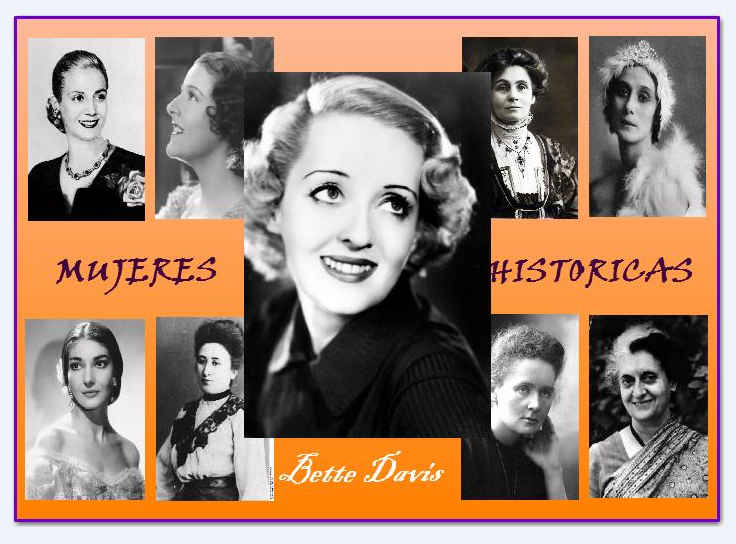
Mujeres para la Historia - V - Bette Davis

Sinopsis
La actriz estadounidense Bette Davis nació el 5 de abril de 1908, en Lowell, Massachusetts. Después de una breve carrera teatral, se convirtió en una de las estrellas más grandes del sistema de estudios de Hollywood, apareciendo en casi 100 películas antes de su muerte en 1989. Davis sigue siendo considerado un icono por sus actuaciones en películas como Todo Sobre Eva y Dark Victory, así como para su personaje más grande: su propia vida, tanto dentro como fuera de la pantalla.
Vida temprana
Ruth Elizabeth Davis nació el 5 de abril de 1908, en Lowell Massachusetts. Cuando tenía 7 años de edad, su padre se divorció de su madre, dejando abandonadas a Bette y su hemana más joven, Barbara.
Aún adolescente, Davis comenzó a actuar en producciones de la escuela en la Academia Cushing en Massachusetts. Tras su paso por el teatro de verano stock en Rochester, Nueva York, Davis se trasladó a la ciudad de Nueva York, donde asistió a la John Murray Anderson / Robert Milton Escuela de Teatro y Danza. Lucille Ball fue una de sus compañeras de clase.
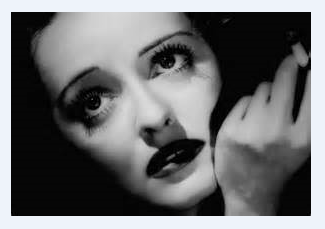
Debut en Broadway y Early Film Carrera
Davis comenzó con la audición de piezas de teatro en Nueva York, y en 1929 hizo su debut en el escenario en el Greenwich Village de Provincetown Playhouse en la Tierra entre. Más tarde ese mismo año, a la edad de 21 años, hizo su primera aparición en Broadway.
Una prueba de pantalla otorgó a Davis un contrato con Universal Pictures de Hollywood, donde se le asignó un pequeño papel en la película de Bad Sister (1931), seguido por por otros papeles menores similares en unas cuantas más películas. Fichó por Warner Brothers en 1932, después de conocerla notificación de la producción por ese estudio de El hombre que soñaba Dios. Después de este avance, Davis iría a hacer 14 películas durante los siguientes tres años.
Lo más destacado de su carrera
En 1934, Warner Brothers cedió a Bette Davis a RKO Pictures para interpretar Of Human Bondage, un drama basado en una novela de W. Somerset Maugham. Davis recibió su primera nominación al Oscar por su interpretación de Mildred, una vulgar camarera de corazón frío. A lo largo del resto de su carrera, interpretaría muchas otras mujeres de carácter fuerte, incluso desagradable, que desafiaron las reglas de la sociedad.
Davis ganó su primer premio de la Academia en 1935, por su papel de una actriz joven con problemas en peligroso. Luego apareció en el bosque petrificado con las estrellas masculinas Leslie Howard y Humphrey Bogart en 1937. Después de un período difícil en la Warner Brothers, tiempo durante el cual fue suspendida por rechazar papeles, demandó al estudio y pasó algún tiempo en Inglaterra, regresó a Hollywood, y se le ofreció un salario más alto y una mejor elección de papeles.
Davis recibió su segundo Oscar en 1938 por su interpretación de una rebelde belleza meridional en Jezabel. Una serie de éxitos de crítica y de taquilla siguió: Ella interpretó a una heredera luchando contra una enfermedad mortal en Dark Victory y Elizabeth Y en La vida privada de Elizabeth y Essex (ambos publicados en 1939), y realizó numerosas actuaciones en las películas de la década de 1940, incluyendo los pequeños zorros; la comedia El hombre que vino a cenar; el drama estadounidense extraña pasajera; y el drama El maíz es verde. En el momento en que ella rompió relaciones con Warner Brothers en 1949, Davis era uno de sus más grandes talentos.
En 1950, Davis dio una de sus actuaciones más indelebles en el drama del espectáculo de Eva al desnudo, interpretando a Margo Channing, una actriz de teatro que se defiende de las inseguridades de acercarse a la mediana edad (y la maquinación de un protegido manipuladora) con ingenio sarcástico y más de unos cuantos cócteles. En una de sus muchas líneas memorables, bromeó, "Abróchense los cinturones: que va a ser una noche llena de baches."
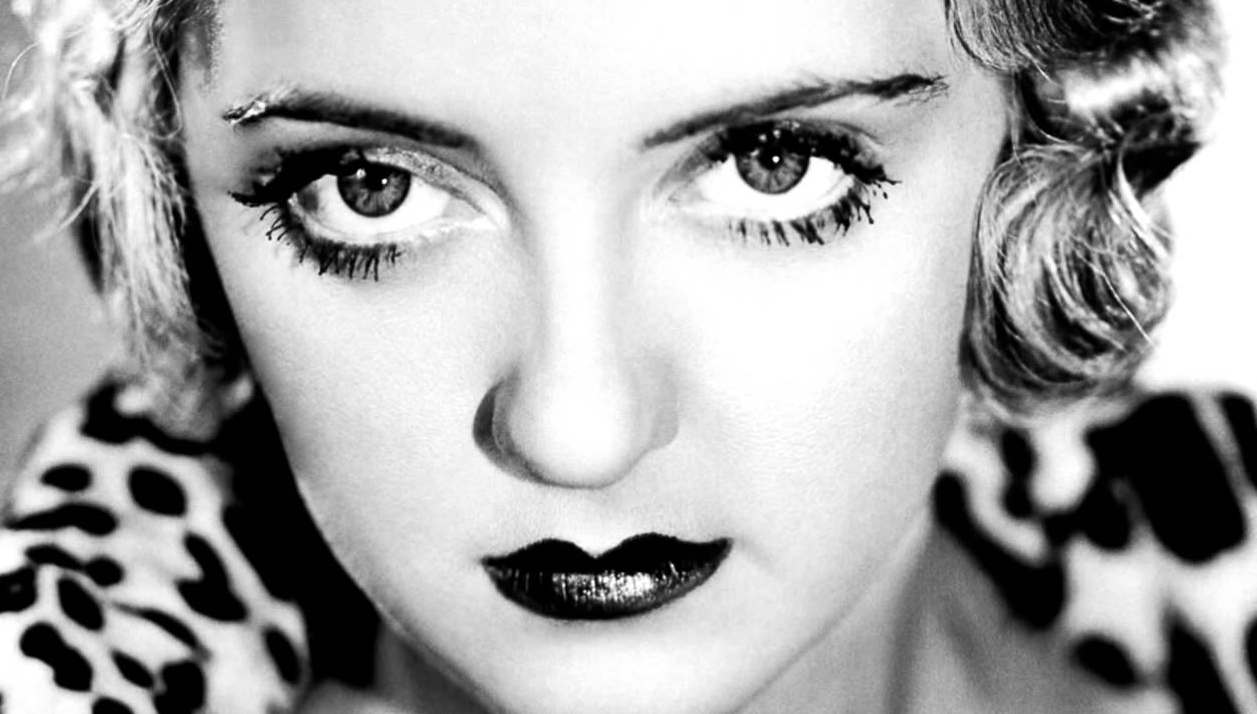
Trabajo más adelante
Davis interpreta a Isabel I de nuevo en La Reina Virgen (1955) y apareció en Tennessee Williams de la noche de la iguana en Broadway en 1961. Algunos de sus otros trabajos durante este tiempo era más escabroso, sin embargo. En la película de terror (y clásico campamento) ¿Qué fue de Baby Jane? (1962), co-protagonizó junto a Joan Crawford como ex estrella infantil que cuida de su hermana con discapacidad. Ella apareció en otra película de terror en 1964, Silencio ... Silencio dulce Charlotte, y luego jugó un matriarca parche en el ojo de desgaste en el melodrama El aniversario en 1968.
A pesar de los problemas de salud en sus últimos años, entre ellos una lucha contra el cáncer de mama, Davis continuó la actuación. Ella apareció en los holocaustos película de terror (1976) y formó parte del conjunto elenco de estrellas del misterio de Agatha Christie Muerte en el Nilo (1979). Uno de sus papeles de la película final fue el de una mujer ciega en Las ballenas de agosto (1987), al lado de Lillian Gish. Ella también apareció en la televisión, ganando un premio Emmy por Extraños de 1979: La historia de una madre y su hija.
Davis recibió muchos premios más adelante en la vida, incluyendo el Premio a la Trayectoria American Film Institute en 1977 y el Premio de Honor del Centro Kennedy en 1987.
Bette Davis murió el 6 de octubre de 1989 en Neuilly-sur-Seine, Francia, a la edad de 81. En el momento de su muerte, ella estaba en su camino a casa de un festival de cine en España, en San Sebastian,donde acababa de ser honrada por su trabajo con la Concha de Plata honorifica a toda una vida.
Vida personal
Davis se casó cuatro veces. Su primer matrimonio, con el director de orquesta Harmon Oscar Nelson Jr., terminó en divorcio; su segundo marido, el empresario Arthur Farnsworth, murió en 1943. Con el tercer marido William Grant Sherry, Davis tuvo una hija llamada Bárbara. Mientras estaba casado con Gary Merrill, su co-estrella en Eva al desnudo, ella adoptó a dos niños, Margot y Michael; El matrimonio terminó en divorcio.
Davis publicó dos autobiografías durante su vida: La vida solitaria (1962) y Eso (1987).
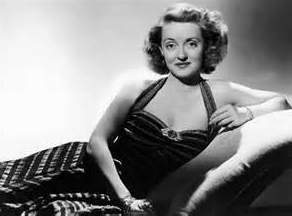
https://www.youtube.com/watch?v=eja-popojUo

Synopsis
American actress Bette Davis was born on April 5, 1908, in Lowell, Massachusetts. After a brief theater career, she became one of the biggest stars in the Hollywood studio system, appearing in nearly 100 films before her death in 1989. Davis is still considered an icon for her performances in such films as All Above Eve and Dark Victory, as well as for her larger-than-life persona both on and off the silver screen.
Early Life
Bette Davis was born Ruth Elizabeth Davis on April 5, 1908, in Lowell Massachusetts, to Ruth (Favor) and Harlow Morrell Davis. When she was 7 years old, her father divorced her mother, who was left to raise Bette and younger daughter Barbara on her own.
As a teen, Davis began acting in school productions at the Cushing Academy in Massachusetts. After a stint in summer stock theater in Rochester, New York, Davis moved to New York City, where she attended the John Murray Anderson/Robert Milton School of Theatre and Dance. Lucille Ball was one of her classmates.
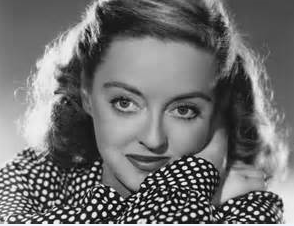
Broadway Debut and Early Film Career
Davis began to audition for theater parts in New York, and in 1929 she made her stage début at Greenwich Village's Provincetown Playhouse in The Earth Between. Later that year, at the age of 21, she made her first Broadway appearance in the comedy Broken Dishes.
A screen test landed Davis a contract with Hollywood's Universal Pictures, where she was assigned a small role in the film Bad Sister (1931), followed by similar minor parts in a few more movies. She moved to Warner Brothers in 1932, after gaining notice in that studio's production of The Man Who Played God. Following this breakthrough, Davis would go on to make 14 films over the next three years.
Career Highlights
In 1934, Warner Brothers loaned Davis to RKO Pictures for Of Human Bondage, a drama based on a novel by W. Somerset Maugham. Davis received her first Academy Award nomination for her performance as the vulgar, cold-hearted waitress Mildred. Throughout the rest of her career, she would portray many other strong-willed, even unlikable, women who defied society's rules.
Davis won her first Academy Award in 1935, for her role as a troubled young actress in Dangerous. She then appeared in The Petrified Forest with male stars Leslie Howard and Humphrey Bogart in 1937. After a rocky period at Warner Brothers, during which time she was suspended for turning down roles, sued the studio and spent some time in England, she returned to Hollywood, and was offered a higher salary and better choice of roles.
Davis received her second Oscar for her performance as a rebellion Southern belle in 1938's Jezebel. A number of critical and box-office successes followed: She played a heiress coming to terms with mortal illness in Dark Victory and Elizabeth I in The Private Lives of Elizabeth and Essex (both released in 1939), and went on to deliver several well-received performances in films of the 1940s, including The Little Foxes; the comedy The Man Who Came to Dinner; the American drama Now, Voyager; and the drama The Corn is Green. By the time she severed ties with Warner Brothers in 1949, Davis was one of its largest talents.
In 1950, Davis gave one of her most indelible performances in the show-business drama All About Eve, starring as Margo Channing, a theater actress who fends off the insecurities of approaching middle age (and the scheming of a manipulative protégé) with sarcastic wit and more than a few cocktails. In one of her many memorable lines, she quipped, "Fasten your seatbelts: it's going to be a bumpy night."
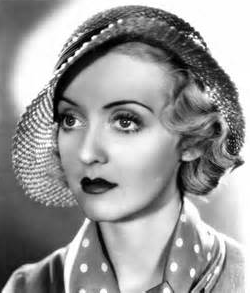
Later Work
Davis depicted Elizabeth I again in The Virgin Queen (1955) and appeared in Tennessee Williams's The Night of the Iguana on Broadway in 1961. Some of her other work during this time was more lurid, however. In the horror movie (and camp classic) What Ever Happened to Baby Jane? (1962), she co-starred with Joan Crawford as a former child star caring for her disabled sister. She was featured in another horror film in 1964, Hush...Hush Sweet Charlotte, and then played an eye-patch-wearing matriarch in the melodrama The Anniversary in 1968.
Despite health problems in her late years, including a fight against breast cancer, Davis continued acting. She appeared in the horror movie Burnt Offerings (1976) and was part of the all-star ensemble cast of the Agatha Christie mystery Death on the Nile (1979). One of her final film roles was that of a blind woman in The Whales of August (1987), appearing opposite Lillian Gish. She also appeared on television, winning an Emmy Award for 1979's Strangers: The Story of a Mother and Daughter.
Davis received many awards later in life, including the American Film Institute Life Achievement Award in 1977 and the Kennedy Center Honors Award in 1987.
Bette Davis died on October 6, 1989, in Neuilly-sur-Seine, France, at the age of 81. At the time of her death, she was on her way home from a film festival in Spain, where she had just been honored for her work in film.
Personal Life
Davis married four times. Her first marriage, to bandleader Harmon Oscar Nelson Jr., ended in divorce; her second husband, businessman Arthur Farnsworth, died in 1943. With third husband William Grant Sherry, Davis had a daughter named Barbara. While married to Gary Merrill, her co-star in All About Eve, she adopted two children, Margot and Michael; the marriage ended in divorce.
Davis published two autobiographies during her lifetime: The Lonely Life (1962) and This 'n' That (1987).
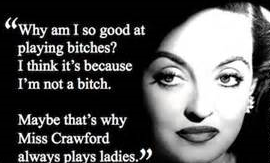
https://www.youtube.com/watch?v=eja-popojUo

